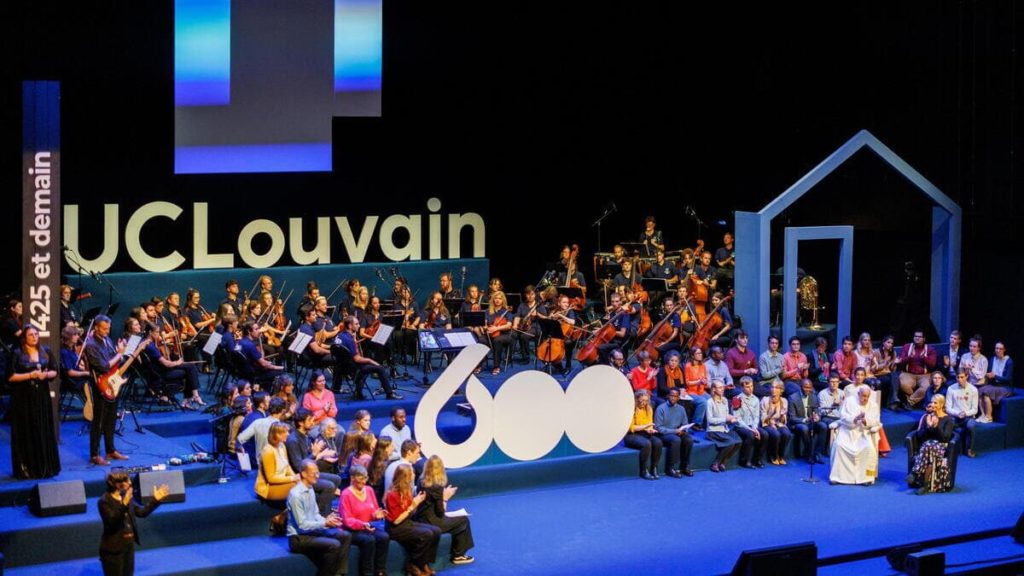Why should men love the Church? Why should they love its laws? It reminds them of life and death, and everything they would rather forget. It is kind where they would be harsh, and tough where they would be tender” (T.S. Eliot). So, why should they love it? In fact, many do not. Especially some Catholics. They are the “preti-preti,” as Charles Péguy called them, those who “deny the temporal of the eternal, who want to dismantle the temporal of the eternal, that which lies within the eternal.”
Take the recent trip of Pope Francis to Belgium and Luxembourg, during which the Pontiff visited the Catholic University of Louvain. A “Catholic” university only in name, as for years now it seems caught up in the desire to conform to the trends of the century (it is here that a professor was reprimanded for daring to say that “abortion is the murder of an innocent person”; it is here that, in 2016, following the attack on Brussels airport, the church bells of the university played John Lennon’s”Imagine”).

A Low Blow
In Louvain, Pope Francis met with professors and students, and it didn’t go very well. Bergoglio delivered very significant speeches about secularization, the dictatorship of relativism, a culture that has renounced “seeking the truth”. He urged not to reduce reason to “rationalism,” warned against “retreating into the comfort of weak thinking,” and encouraged young people to accept “the challenge of integral development, which requires fidelity to God and fidelity to man.” In the same trip, Francis spoke admiringly of Belgian King Baudouin, who abdicated for a day rather than sign the law that introduced abortion in the country, and expressed “shame” and asked for forgiveness for the “crimes” related to priests’ pedophilia.
All in vain, all insufficient: in Louvain they were so happy to meet the Pope that they ambushed him. Both students and the university rector strongly disagreed, reproaching the Pontiff for not admitting women to the priesthood and for not being open to LGBT people. Not only that: while Francis was speaking, a harsh and unsigned statement was issued accusing him of “reductive and conservative positions.” Positions against which “the Catholic University of Louvain can only disagree” (in interviews on the plane during the return, the Pope labeled the statement as “a low blow. It was done while I was speaking”).
To understand the atmosphere in which he was received, just read the interview that Vatican News had with Bénédicte Lemmelijn, Dean of the Faculty of Theology and Religious Studies, who proudly claimed her rainbow positions. Today, Lemmelijn says in the interview, “it is difficult to have a single untouchable universal truth for everyone.”
A Problem of Reality
What happened in Louvain was a vivid representation of the “relativism” that Francis denounced in his speeches. Progressive Catholicism – this moralism seasoned with good intentions – is a Christianity without a Church, entirely focused on correcting consequences whose origin has been concealed. Firm in their intention to soften a “truth” that they feel is blunt and demanding, the priest-priests of Louvain forget where it springs from.
But what sense does the Church make if not to communicate a fact of two thousand years ago, present today? It does not defend a sentiment, a benevolent attitude, a good idea, but stubbornly what is, what has happened, what happens. Ultimately, the Church does not have a moral problem but a problem of reality, because “reality is Christ,” as Saint Paul wrote to the Colossians. Interpretations arise from an idea, but a story arises from a fact. That is why Baudouin abdicated; he did not want to be “more realistic than the king,” the King who made the world.



